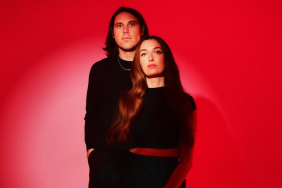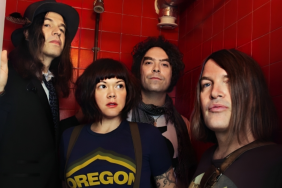New York, I Love You is doomed from its release to become known as the film made by the same guy (Emmanuel Benbihy) as Paris, Je T’Aime, only not as good. It’s the second film in Benbihy’s “Cities of Love” series, where through a collection of short films by various directors, the universal nature of love is portrayed as it’s evoked in different cities.
Part of the success of Paris, Je T’Aime was that it was the first film of this nature (one film from twenty directors) but the diversity of interpretations of ‘love’ gave it a depth simply not explored in New York, I Love You. For the majority of these films in New York, I Love You, love = sex and if Benbihy’s ultimate aim was to portray the essence and personality of a city, New York needs therapy. Not only do the stories lack diversity, they also lack depth, wit and insight – or else if they don’t, the only explanation is New York does.
Of the eleven films, the most intriguing would have to be Shekhar Kapur’s mysterious take on the Upper East Side where a once famous opera singer (Julie Christie) checks into her favourite hotel and finds herself caught amongst the layers of time. Joshua Marston’s comical portrayal of the pensioners, Abe and Mitzie (Eli Wallach and Cloris Leachman), is a surprisingly heart-warming story that steers clear of the cliches the other films don’t and delivers an intimate message about a lifetime of love.
On the flip side, Jiang Weng’s tale from Chinatown is unimaginably unrealistic and it’s characters are rather weak, while Natalie Portman’s directorial debut in Central Park uses all the same story-telling tricks as her fellow directors. In fact, it seems as though many of the writers were trying to do just that – trick you with a surprise twist at the end of each story, something that was much more original in Paris je t’aime and not at all surprising in New York, I Love You.
If this is an accurate portrayal of New York city (which I highly doubt), then New York City is rather bland and all about sex, which in the words of Tina Turner, begs the question – what’s love got to do, got to do with it?












